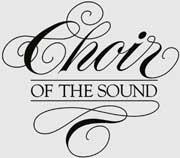
Here is a little background on scat singing, which you will be hearing in our upcoming Pops show!
It is a convention of jazz performance that when a combo is playing, each player gets a turn to take over the lead and improvise, showing off the player’s skill and his/her instrument’s strengths, while other combo members either sit out or drop to the background. If the combo includes a vocalist, the audience is going to hear some scat singing.
Scat singing, or scatting, is singing without lyrics, using nonsense syllables made up spontaneously to fit the mood of the piece and the singer. Scatting may be fast or slow, humorous or melancholy. As well as riffing on the musical themes of a song, the singer may use sound effects to mimic the other instruments; “wa-waah” to suggest the bray of a trumpet or saxophone, or the “doo ba doo ba doo ba doo ba” of a walking bass line. A scat solo is likely to cover the singer’s full register, showing off the voice in all its variety.
The origins of scat are hard to pinpoint. Louis Armstrong liked to tell the story of how he invented it by accident when his sheet music fell off the stand during a 1924 recording session, leaving him to make up off-the-cuff vocals. Armstrong certainly was a master of the form, as the recording in question (“Heebie Jeebies”) amply demonstrates. However, there is recorded evidence of both Al Jolson and Gene Green scatting as early as 1911. In an interview by music historian Alan Lomax, Jelly Roll Morton credits a comedian named Joe Simms with inventing the style. Morton himself was a skilled practitioner, who liked to use a line of scat to introduce a song.
Scat singing caught on rapidly within the jazz community; Louis Armstrong and Cab Calloway inspired George Gershwin to include some scat in Porgy and Bess. Ella Fiztgerald demonstrated her mastery of vocal improvisation through scat; and the Boswell Sisters scatted in three-part harmony. Wordless vocal improvisation is alive and well in today’s popular music—from Bobby McFerrin to hip-hop beatboxing—and it has never fallen out of favor in jazz clubs.

